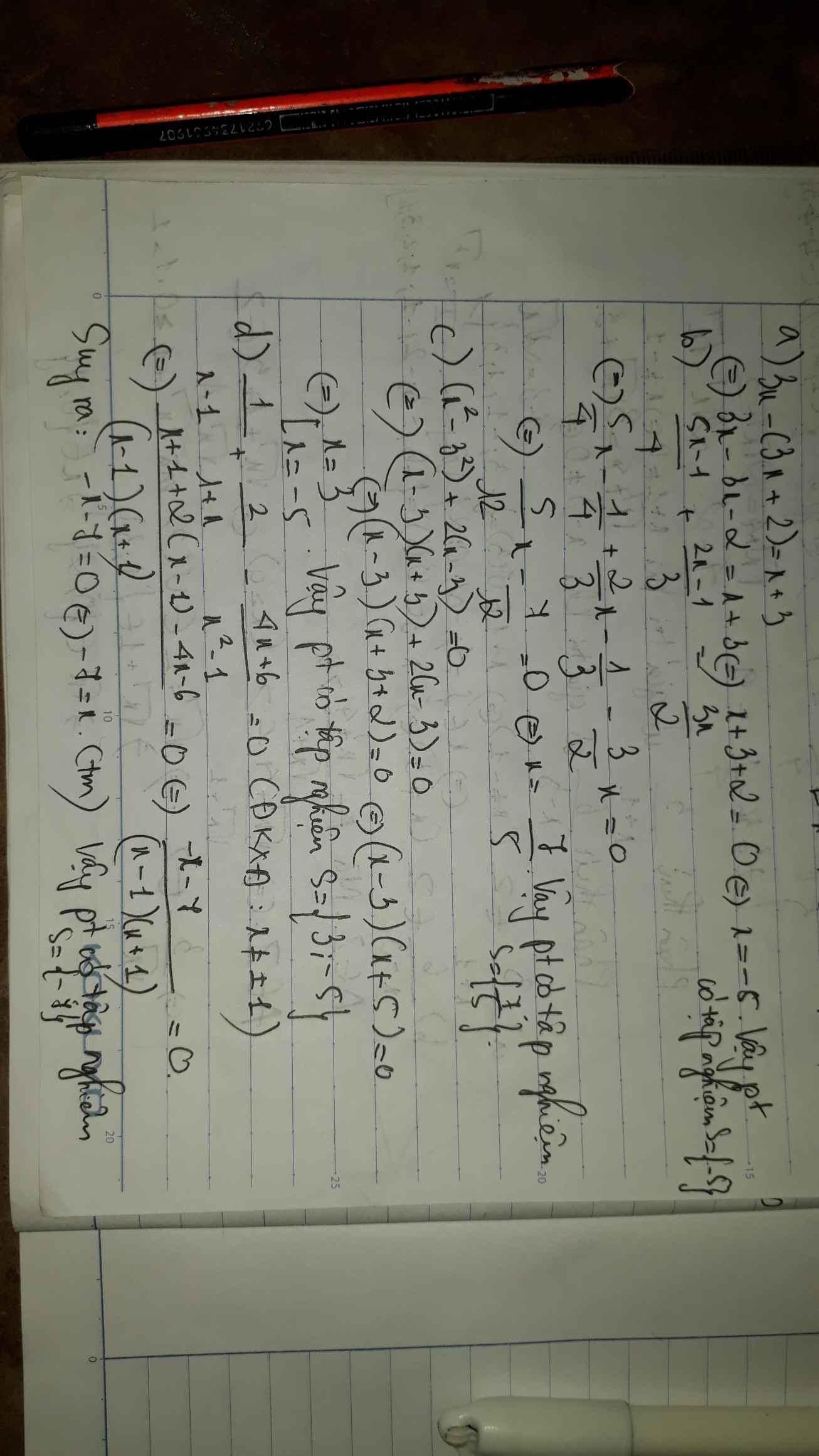Giải các phương trình sau :
a) (x-2)^3 + (3x-1)(3x+1) = (x+1)^3
b) (x+1)(2x-3) = (2x-1)(x+5)
c) (x-1)^3 - x(x+1)^2 = 5x(2-x) - 11(x+2)
d) (x-3)(x+4) - 2(3x-2) = (x-4)^2
e) x(x+3)^2 - 3x = (x+2)^3 + 1
f) (x+1)(x^2 - x + 1) - 2x = x(x+1)(x-1)
Mọi người giúp mình với ạ!




a) (x - 2)3 + (3x - 1)(3x + 1) = (x + 1)3
<=> x3 - 6x2 + 12x - 8 + 9x2 - 1 - x3 - 3x2 - 3x - 1 = 0
<=> 9x - 10 = 0
<=> 9x = 10
<=> x = 10/9
Vậy S = {10/9}
b) (x + 1)(2x - 3) = (2x - 1)(x + 5)
<=> 2x2 - x - 3 - 2x2 - 9x + 5 = 0
<=> -10x + 2 = 0
<=> -10x = -2
<=> x = 1/5
Vậy S = {1/5}
c) (x - 1)3 - x(x + 1)2 = 5x(2 - x) - 11(x + 2)
<=> x3 - 3x2 + 3x - 1 - x3 - 2x2 - x = 10x - 5x2 - 11x - 22
<=> -5x2 + 2x + 5x2 + x + 22 - 1 = 0
<=> 3x = -21
<=> x = -7
Vậy S = {-7}
d) (x - 3)(x + 4) - 2(3x - 2) = (x - 4)2
<=> x2 + x - 12 - 6x + 4 - x2 + 8x - 16 = 0
<=> 3x - 24 = 0
<=> 3x = 24
<=> x = 8
Vậy S = {8}
e) x(x + 3)2 - 3x = (x + 2)3 + 1
<=> x3 + 6x2 + 9x - 3x = x3 + 6x2 + 12x + 8 + 1
<=> x3 + 6x2 + 6x - x3 - 6x2 - 12x = 9
<=> -6x = 9
<=> x = -3/2
Vậy S = {-3/2}
f) (x + 1)(x2 - x + 1) - 2x = x(x + 1)(x- 1)
<=> x3 + 1 - 2x = x3 - x
<=> x3 - 2x - x3 + x = -1
<=> -x = -1
<=> x = 1
Vậy S = {1}